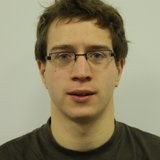Jutho Haegeman - ERQUAF
Onderstaande beschrijving is in het Engels:

The research of Jutho Haegeman is focused on strongly correlated quantum many body systems and quantum field theories, with a particular interest in studying these systems using entanglement methods and tensor network states. The latter constitutes both a theoretical framework and a numerical simulation tool to probe the low energy behavior of correlated quantum systems and the exotic phenomenology that can emerge from them.
Contact: Jutho.Haegeman@UGent.be
Publications: https://biblio.ugent.be/person/802000026611
Entanglement and Renormalisation for Quantum Fields (ERQUAF)
The ERC project ERQUAF sets as its goal to lift this “entanglement methodology” into the realm of quantum field theory. Indeed, in high energy physics, the widespread interest in entanglement has only been triggered recently, due to the intriguing connections between entanglement and the structure of spacetime that arise in black hole physics and quantum gravity. Furthermore, direct continuum limits of various tensor network ansätze have been formulated over the past few years. However, the application thereof to interacting field theories is largely unexplored territory and holds promising potential.
The central theme of ERQUAF is thus to establish the synergy between field theory and entanglement theory via the following goals:
- Characterising the entanglement structure of low energy quantum field states
- Developing variational simulation methods for field theories by combining ideas from entanglement, the renormalisation group and perturbation theory
- Constructing low-energy effective theories on top of the tensor network description of correlated ground states
- Establishing the profound interplay between entanglement, renormalisation and geometry.
